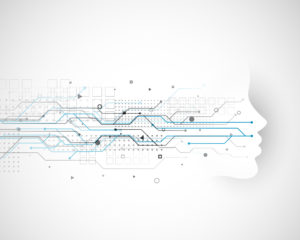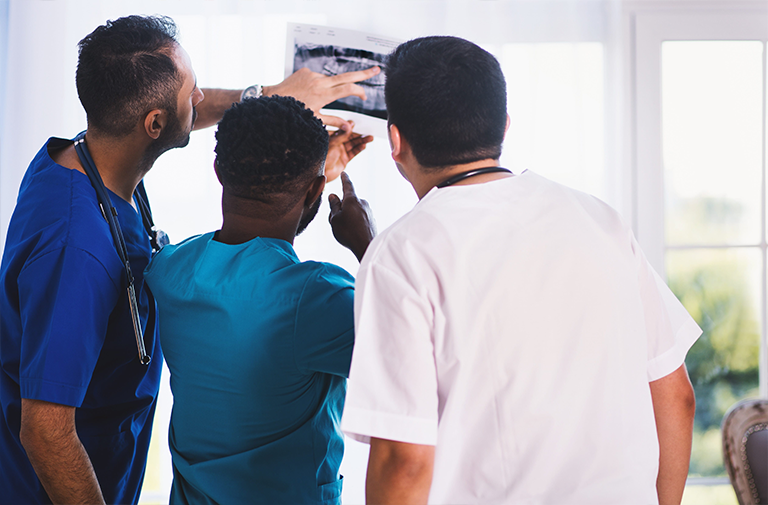Artificial Intelligence in the Medical Field is saving lives by processing medical images with accuracy and precision.
According to a report, about 33% of the time, “two or more radiologists looking at the same mammography will disagree on the interpretation of the results.” This is an eye-opening statistic as a radiologist’s interpretation can be a matter of life and death. Fortunately, Artificial Intelligence in the medical field may have the answer.Artificial Intelligence and Automated Medical Image Processing has been around in the medical field for several years. Visual Image Processing analyzes a medical image and presents its findings. It is able to compare the image against thousands of past images in order to output an accurate result.Artificial Intelligence analyzes medical images by first determining what the image is showing. AI automatically determines the substance of the image and then confirms its prediction with the technician. The machine learns from its mistakes, becoming more precise and accurate with each image. The image is realigned to match a standard orientation set by the system. The image is then segmented into different meaningful sections based on color and design characteristics. The sections typically correspond to the body’s organs or tissues such as the heart, lungs, etc. Using image recognition technology, the biological structures are identified.AI focuses its attention to the area of the suspected illness in hope to determine any abnormalities. After a preliminary analysis, AI pulls from thousands of similar images with confirmed outputs. AI compares these images to the image in question. This is perhaps the greatest attributes of Artificial Intelligence that exceeds human ability. Humans are simply not capable of comparing the image in question to a historical database filled with thousands of images.So, if advanced medical imaging technology exists, why are we not using it more often to get better results? The answer has to do with the fact that doctor’s wish to trust their intuition rather than the proven technology in front of them. Hopefully, as we put more trust into machines, Automated Medical Image Processing will become the norm.
The image is then segmented into different meaningful sections based on color and design characteristics. The sections typically correspond to the body’s organs or tissues such as the heart, lungs, etc. Using image recognition technology, the biological structures are identified.AI focuses its attention to the area of the suspected illness in hope to determine any abnormalities. After a preliminary analysis, AI pulls from thousands of similar images with confirmed outputs. AI compares these images to the image in question. This is perhaps the greatest attributes of Artificial Intelligence that exceeds human ability. Humans are simply not capable of comparing the image in question to a historical database filled with thousands of images.So, if advanced medical imaging technology exists, why are we not using it more often to get better results? The answer has to do with the fact that doctor’s wish to trust their intuition rather than the proven technology in front of them. Hopefully, as we put more trust into machines, Automated Medical Image Processing will become the norm.
NeuroChain, let’s build a better world!
Photo credits: Freepik, Pexels, PixabayFollow us on Telegram, Facebook, Twitter and YouTube. If you have any questions, feel free to get in touch with NeuroChain Team, and we will answer you as soon as possible!
